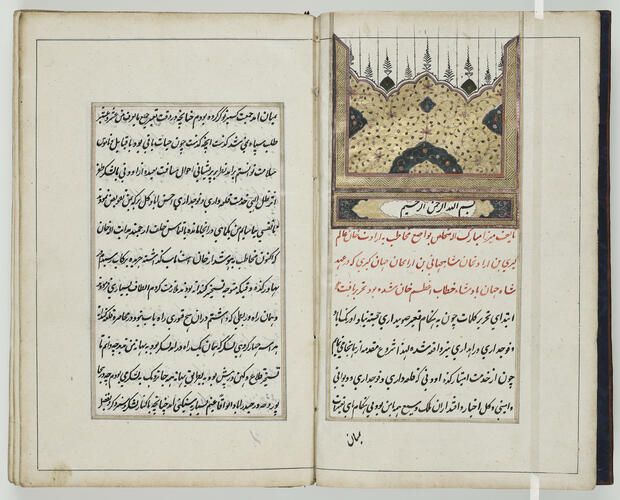TARIKH IIRADAT KHANI, an undated old Persian manuscript in the Oriental Public Library, Patna, comprising the memoirs of Mirza Mubarakullah Wazih. The tide inscribed on the flyleaf is Tankhi Mubaraki. The work which is also known as Maqtal us Salatin is a history of the successors of Emperor Aurangzib from 1707 to 1714. The manuscript, in nasta`Hq style, covers 174 pages, with 15 lines to a page. Dates are few but the chronological sequence has been maintained. The author belonged to a noble family and held a high rank under the sons and successors of Emperor Aurangzib.
As a personal friend of Commander Mun`im Khan, he was present in the Mughal army at the battle of Lohgarh against Banda Singh Bahadur. His account of the action, based upon personal observation/is of great historical value. He refers to the “spirit of martyrdom among the Sikhs.” Delhi and its environs had been so terrorized by the news of Banda Singh`s victories that Emperor Bahadur Shah decided to march in person against him, declaring a holy war (jihad) upon the Sikhs. Banda Singh`s citadel was captured, though he himself escaped disguised as ajogi. An abridged English translation of the work by Jonathan Scott was published in 1786 in London.
References :
1. Kirpal Singh, A Catalogue of Persian and Sanskrit Manuscripts. Amrilsar, 1962
Tarikh-i-Iradat Khani is an undated Persian manuscript attributed to Mirza Mubarakullah Wazih, also known by his poetic name Wasih. The work, preserved in the Oriental Public Library in Patna, is also referred to as Maqtal-us-Salatin. It chronicles the history of the successors of Emperor Aurangzeb, covering the period from 1707 to 1714. Written in nasta’liq script, the manuscript spans 174 pages, with 15 lines per page, maintaining a chronological sequence despite the scarcity of specific dates.
The author, a nobleman of high rank under Aurangzeb’s successors, provides firsthand accounts of significant events, including the Mughal army’s battle against Banda Singh Bahadur at Lohgarh. His observations highlight the “spirit of martyrdom among the Sikhs” and the terror Banda Singh’s victories instilled in Delhi and its environs, prompting Emperor Bahadur Shah to declare a holy war (jihad) against the Sikhs. Banda Singh’s citadel was eventually captured, though he escaped disguised as a jogi.
An abridged English translation of the manuscript was published in 1786 by Jonathan Scott. The text is valued for its historical insights, particularly its restrained and unbiased language when discussing the Sikhs.



